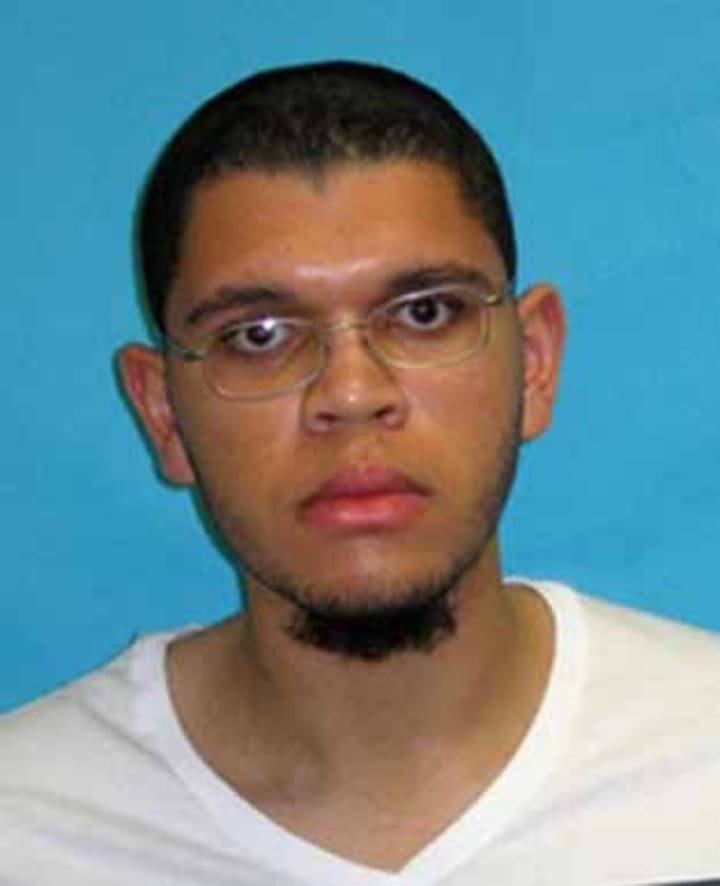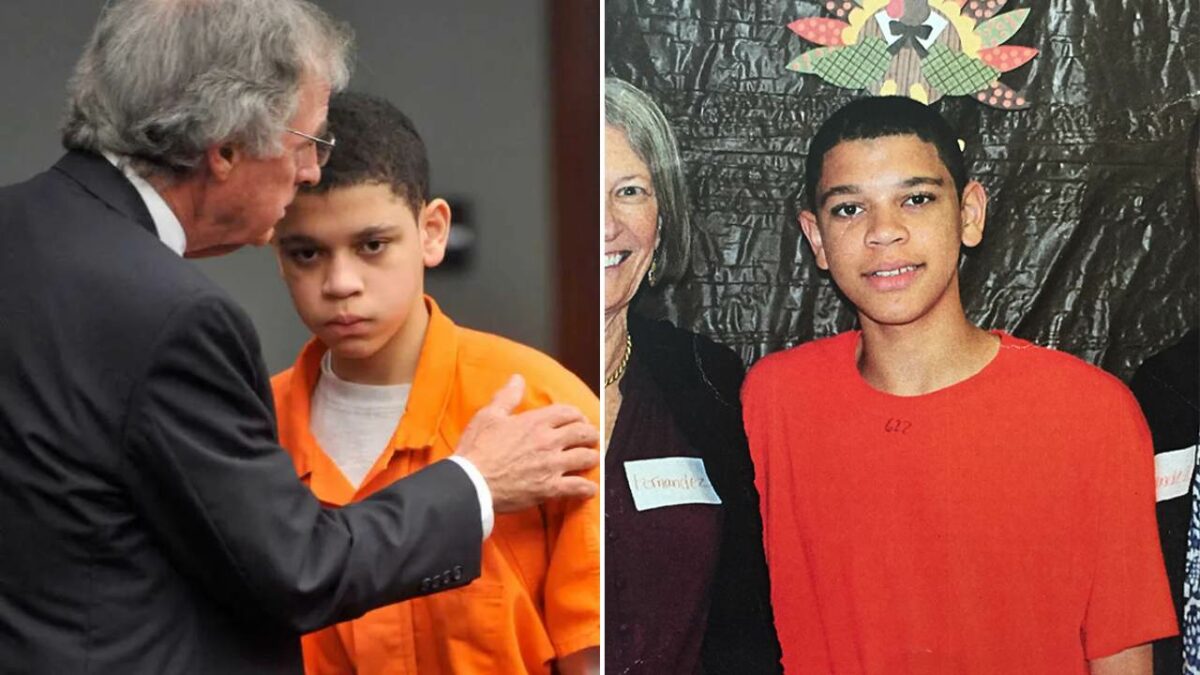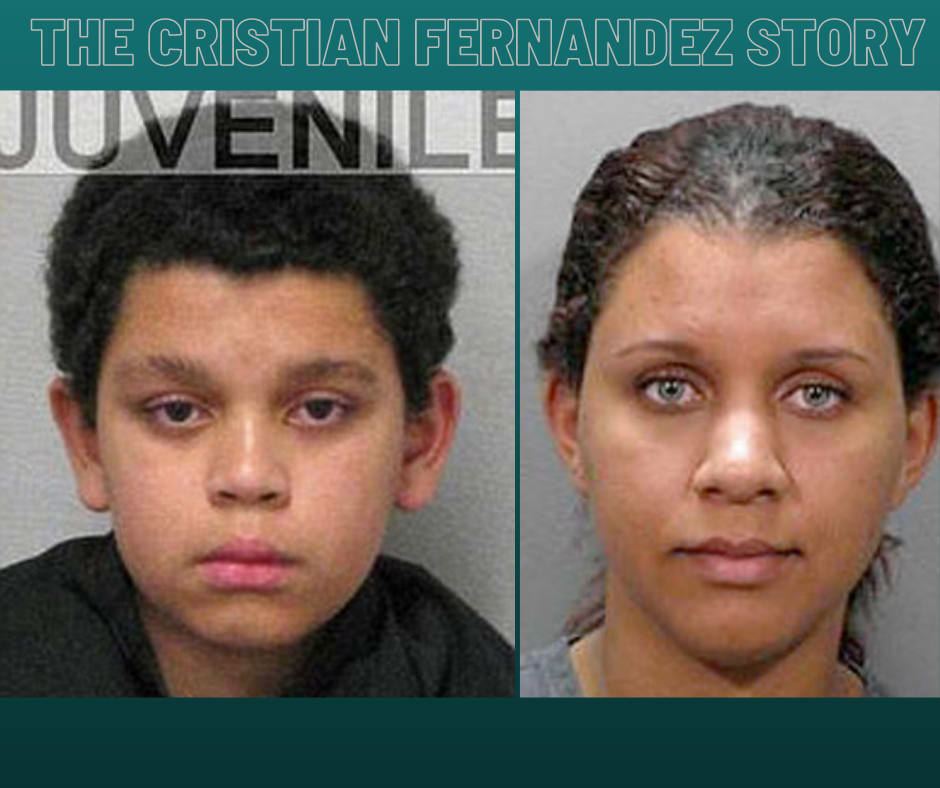Cristian Fernandez: Where Is He Today? The Shocking Truth
Where does a shadow of such a young age linger, and what form does it take in the present day? Cristian Fernandez, a name etched into the annals of Jacksonville, Florida, as the youngest person ever charged as an adult with first-degree murder, now navigates a life shaped by a past that few can fathom.
The question of "Where is Cristian Fernandez today?" triggers a complex journey through a case that continues to provoke debate and introspection. His story is one of unthinkable violence, the failings of a system, and the enduring consequences of trauma. It is a narrative marked by the tragedy of a toddler's death, the complexities of child psychology, and the legal battles that followed. It is a case that forces society to confront the uncomfortable realities of child abuse, mental health, and the potential for darkness that can reside within the most vulnerable among us.
| Category | Details |
|---|---|
| Full Name | Cristian Fernandez |
| Date of Birth (Approximate) | Born in 1999 or 2000 (Age 24 or 25 as of October 26, 2024) |
| Place of Residence (Current, Believed) | Florida, USA |
| Known for | Convicted of the murder of his toddler brother and sexual assault of his sisters |
| Crime Details | Killed his toddler brother by slamming his face into a bookcase; sexually assaulted his sisters. |
| Age at Time of Crime | 12 years old |
| Sentence | 5 years |
| Probation | Currently serving a probation period after release |
| Current Activities | Focusing on personal development and compliance with probation conditions; details are private. |
| Mother's Name | Biannela Susana |
| Relevant Website | First Coast News - Cristian Fernandez Case |
The circumstances surrounding the death of the toddler, in Jacksonville, Florida, in 2011, were horrific. Cristian Fernandez, then only 12 years old, was accused of a brutal act. The details of the crime, which included the physical assault of his brother, painted a picture of violence that was both shocking and deeply disturbing. The investigation, the trial, and the subsequent legal proceedings were intensely scrutinized by the media and the public alike, all grappling with the incomprehensible nature of a child committing such a heinous act.
The decision to charge Cristian Fernandez as an adult sent shockwaves throughout the legal system and the community. It was a move that underscored the gravity of the crime, yet it also ignited a fierce debate about the treatment of children in the criminal justice system. Many argued that the system was not equipped to handle the complexities of a child's mind, and that a more rehabilitative approach would have been more beneficial for both Fernandez and society. Others maintained that the severity of the crime warranted the harshest penalties available.
The mother of Cristian Fernandez, Biannela Susana, has spoken of the lasting emotional toll on the other children involved, especially the girls, and the immeasurable consequences of this devastating event. Her comments offer a rare glimpse into the lasting pain that is embedded in the entire family.
One of the most haunting aspects of the case is the question of how a child, considered innocent by nature, could commit such a violent act. The investigation explored Cristians background, seeking to identify any potential contributing factors to his behaviour. Reports of abuse, neglect, and a troubled family dynamic began to emerge. These accounts suggested that Fernandez himself was a victim of his circumstances, adding another layer of complexity to an already intricate case. The exploration of his psychological state became a critical element of the legal proceedings, as experts sought to understand the forces that could lead a child to commit such acts.
The courtroom drama was just as shocking as the crime itself. Witness testimonies, expert opinions, and legal arguments painted a detailed portrait of a child's descent into violence. The prosecution focused on the brutality of the crime, attempting to demonstrate premeditation and intent. The defense, meanwhile, sought to portray Fernandez as a product of his environment, a child who needed help, not punishment. The trial was a battle of perspectives, each side attempting to shape the narrative and influence the outcome.
The sentence of five years, which the court handed down, was viewed by many as surprisingly light. Given the severity of the crime, the publics reaction varied from outrage to cautious understanding. The outcome ignited further debate, fueling concerns about the effectiveness of the juvenile justice system and its ability to offer justice to both victims and perpetrators. The fact that Fernandez was released relatively early on good behavior, created more controversy. His present circumstances, including his probation status, became of significant interest to the public.
Currently, Cristian Fernandez is believed to be residing in Florida, where he is serving a probation period. The details of his everyday life are largely private, but it is understood that he is attempting to focus on self-improvement and complying with the conditions of his probation. While the specifics of his current activities remain concealed, the central theme is his effort to move forward. However, the shadow of his past will continue to loom large, constantly questioning whether Fernandez can truly find peace and how he will navigate the world.
The impact of the case extended beyond the courtroom, igniting important conversations about child abuse, mental health, and the responsibilities of the legal system. The community grappled with difficult questions: How do we protect vulnerable children? How do we help those who have committed horrific acts? How do we prevent such tragedies from happening again? The case has inspired documentary filmmakers to chronicle the events and explore the underlying factors. The upcoming documentary hopes to delve into the complexities of the case, to find answers about what might have led to such a tragedy, and assess the implications of the courts decision.
The case of Cristian Fernandez serves as a grim reminder of the fragility of childhood, the devastating effects of violence, and the enduring complexities of the human psyche. It is a story that will continue to be analyzed and re-examined, as society endeavors to comprehend the darkest corners of human behavior and seek ways to prevent such tragedies from ever happening again.
The legal and social echoes of the case continue to resonate. The legal profession, child welfare organizations, and mental health professionals are still assessing and implementing improvements to ensure that children are protected and that the judicial system is equipped to respond effectively to complicated cases. The debate around the nature of justice, rehabilitation, and the long-term impacts of trauma will continue to shape the way society addresses crime and the well-being of its members.


